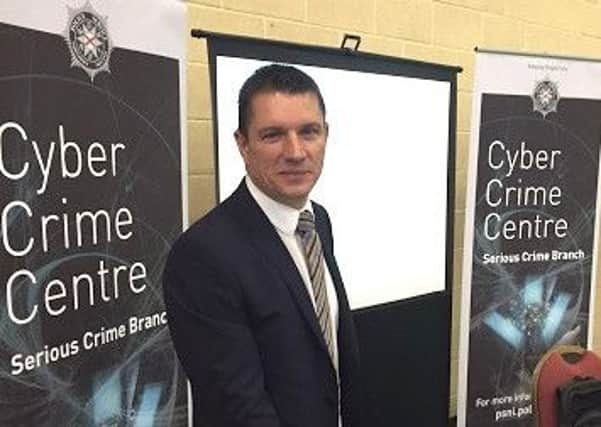Detectives advise young people how to stay safe online


For the first time, members of the team attended the events to chat to young people about cyber safety, as well as the potential consequences of getting involved in criminal activity online.
Speaking at the event at the Jordanstown campus, Detective Chief Inspector Dougie Grant, from the Cyber Crime Centre, explained: “We all know our young people are internet savvy which is great, but it is also vitally important that we help them stay safe online and going to events like this is a great opportunity for us to talk to them about cyber safety in an informal, relaxed setting.
Advertisement
Hide AdAdvertisement
Hide Ad“We also recognise that although the majority of young people use the internet for legitimate reasons, some of them, either knowingly or unwittingly, stray into criminal territory and can be naive about exactly what they are getting involved in.
“It is important that everyone understands the law and the fact there can be consequences for those who get involved in any type of criminal activity online, and events like this also give us the opportunity to highlight this message.”
The PSNI’s general cyber safety advice is:
- Don’t share personal information or images with people who you don’t know.
- Don’t accept friend requests with someone you don’t know - not everyone online is who they say they are.
Advertisement
Hide AdAdvertisement
Hide Ad- Set privacy settings on all devices so that only people you know can view your account.
- Don’t post anything online that you are not happy to be shared, particularly nude or nearly nude images or videos. It may seem like a bit of fun with friends at the time but there is always a chance those images could be shared or get into the wrong hands and could lead to harmful situations such as stalking, abuse or blackmail.
- If you have had disturbing interaction online, ring police on 101.
- If you receive any inappropriate images or links, it is important that you do not forward it to anyone else. Contact police immediately. By doing this you could help prevent further such incidents.